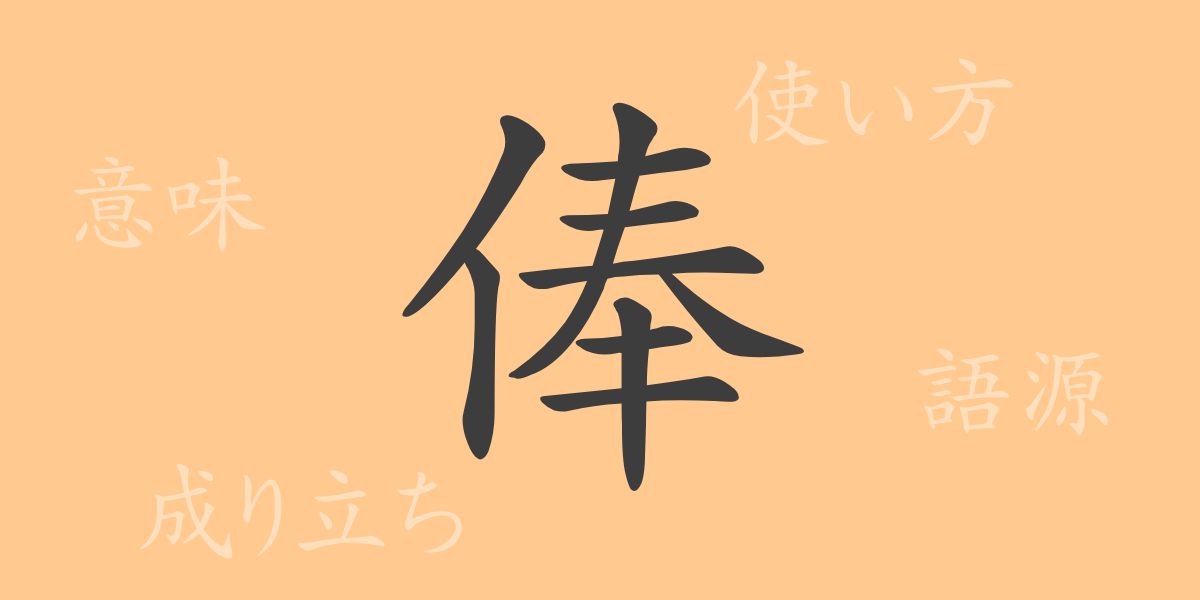Japanese 常用漢字(じょうようかんじ) (Jouyou Kanji) are imbued with deep meanings and histories in their shapes and sounds. The character “俸(ほう)” (Hou) might not be frequently encountered in daily life, but it represents an important concept rooted in our lives. This article delves into the origins, meanings, usage, and compounds of the kanji “俸(ほう)” (Hou), uncovering its charm.
Origins of 俸(ほう) (Hou)
The character “俸(ほう)” (Hou) is a kanji passed down from ancient China, and exploring its etymology reveals that it was used to denote compensation or salary for those engaged in public service. The formation of kanji includes various types such as pictographs and ideographs, and “俸(ほう)” (Hou) is an ideograph combining “亻(にんべん)” (ninben), meaning person, and “封(ふう)” (fuu), which signifies sealing land, i.e., territory or reward. Thus, “俸(ほう)” (Hou) came to mean compensation paid to a person.
Meanings and Usage of 俸(ほう) (Hou)
The kanji “俸(ほう)” (Hou) is primarily used to refer to the salary or compensation of people working in public offices or government positions, particularly salaries paid regularly. For example, “俸給(ほうきゅう)” (Houkyuu) means the salary of a public servant, and “俸禄(ほうろく)” (Hourouku) refers to the salary or stipend given to those in positions within the shogunate or feudal domains. In modern times, it is generally used to refer to such public compensations.
Reading, Stroke Count, and Radical of 俸(ほう) (Hou)
Understanding “俸(ほう)” (Hou) requires knowledge of its readings and components.
- Reading: The On’yomi (音読み) is “ホウ” (Hou), and there is no Kun’yomi (訓読み).
- Stroke Count: It has a total of 10 strokes.
- Radical: The radical is 人偏(ひとえ/にんべん) (Hitoe/Ninben), meaning person.
Compounds, Idioms, and Proverbs Using 俸(ほう) (Hou) and Their Meanings
Compounds and idioms containing “俸(ほう)” (Hou) are mostly related to salary or compensation. For instance, “俸給(ほうきゅう)” (Houkyuu) means the salary of a public servant, and “俸禄(ほうろく)” (Hourouku) refers to the salary or stipend according to one’s position. Additionally, “俸祿(ほうろく)を受ける” (Hourouku wo Ukeru) is an expression used to indicate holding a public office. These expressions strongly reflect the basic meaning of “俸(ほう)” (Hou) as compensation or salary.
Summary of 俸(ほう) (Hou)
Through this article, we have explored the historical background, modern usage, and even the readings and components of the kanji “俸(ほう)” (Hou). As a word referring to compensation related to specific professions or positions, “俸(ほう)” (Hou) continues to play a significant role in our society. By understanding the meanings embedded in each kanji, we can rediscover the richness and depth of the Japanese language.

























